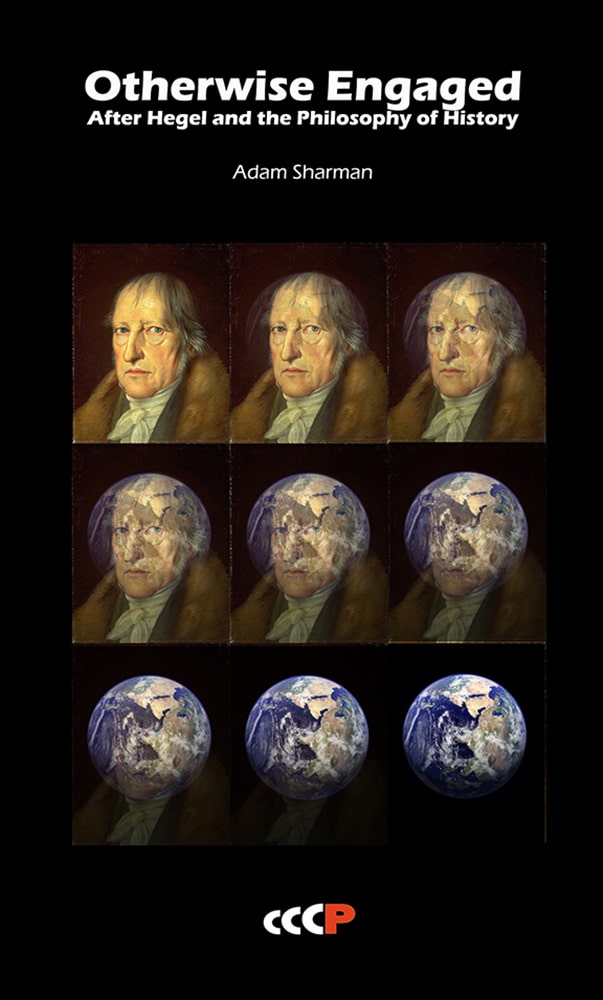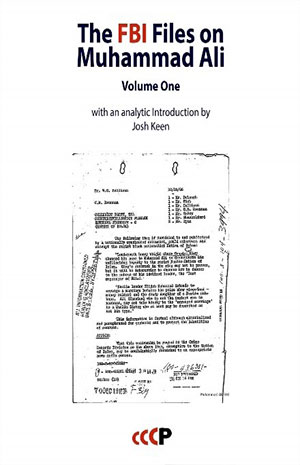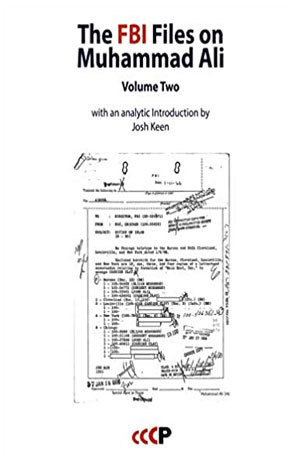Critical, Cultural and Communications Press
History and Society
Richard Hoggart: Culture and Critique
Edited by Michael Bailey and Mary Eagleton

- 256 pp. ISBN 9781602710337
- Date of Publication: 8 August 2017
Richard Hoggart: Culture and Critique provides a detailed and critical analysis of Hoggart's life and work. Some of the contributions come from a personal knowledge of and collegial friendship with Hoggart and help us to know more about particular aspects of his biography. Other contributors have sought to fit Hoggart within a British tradition from Matthew Arnold, through F.R. Leavis to E.P. Thompson and Raymond Williams. Read in their entirety, this lively collection of essays raise fundamental questions about culture and the arts, moral and aesthetic sensibility, educated citizenship and social democracy, and will be of interest to students and academics in social history, literary criticism, media studies and cultural sociology.
Where you can buy this book from Amazon
(Just click on the link for your home Amazon site)
Psychoanalysis
by Colin Wright

- 130 pp. ISBN 9781905510078
- Date of Publication: 1 March 2008
Psychoanalysis has always been controversial, complex and hard to categorise. Is it a form of therapy or of social theory? Can it really claim to be a respectable science? Is it a branch of psychology or of philosophy, or neither? This introductory text uses clear language and everyday examples to take the reader, step by step, through the key ideas of psychoanalysis and its central figures. The first five chapters deal with the founding father of psychoanalysis, Sigmund Freud, while the second five examine the ideas of the key post-Freudians, Carl Jung, Melanie Klein, and Jacques Lacan, before considering some of the most influential critiques of psychoanalysis coming from feminism and the philosophy of science. Despite its continuing controversial status, Colin Wright argues that psychoanalytic theory is in fact ideally placed to describe the oddities of emotional life in today's consumer society. Thus, as well as an understanding of fundamental theoretical terms such as “repression”, the “unconscious”, “sexuality” and the infamous “Oedipus Complex”, readers of this lively volume will also come away with a general grasp of the history of, and the debates attending, the international psychoanalytic movement.
Where you can buy this book from Amazon
(Just click on the link for your home Amazon site)
Mirror on the Veil: A Collection of Personal Essays on Hijab and Veiling
Edited by Nausheen Pasha-Zaidi and Shaheen Pasha

- 228 pp. ISBN 9781905510511
- Date of Publication: 26 April 2017
What does the word “veiling” mean to you? For some it is an emblem of piety, while others condemn it as a patriarchal tool of oppression. Love it or hate it, the veil is one of the most prevalent and misunderstood symbols of feminine identity and power today. This anthology of personal essays from around the globe demystifies the individual significance of the veil by taking you inside the hearts and minds of those who have experienced it first hand. How do different societies relate to a veiled woman? Can covering the hair be an act of defiance and empowerment? Can the veil be seen as an expression of one's own sensuality? Part academic and part confessional, the stories inside help answer these questions by moving beyond the religious significance attached to this controversial stretch of fabric. Instead they explore the psychological, sociological and spiritual implications of veiling, giving voice to men and women of varied religious and cultural backgrounds who have been touched by the veil.
“Hijab has long been a deeply misunderstood expression, where many assign their own meaning to it instead of listening to those who choose it. This important collection of essays offers a window into the personal narratives of the women who observe this practice, allowing Muslim women to speak for themselves. A must read for anyone wishing to go beyond assumptions and stereotypes.”DALIA MOGAHED, DIRECTOR OF RESEARCH, INSTITUTE FOR SOCIAL POLICY AND UNDERSTANDING (ISPU)
Where you can buy this book from Amazon
(Just click on the link for your home Amazon site)
Walter Milward: Soldier and Coal Miner
by Jack Bagshaw Millward, edited by Hilary Hillier

- 72 pp. ISBN 9781905510481
- Date of Publication: 9 January 2017
This is the story of one man from Kirkby-in-Ashfield, Nottinghamshire, who died in the First World War. Walter Milward, a miner at Annesley pit, enlisted two days after war was declared at the age of 39. He died in August 1915 of wounds received at Gallipoli, Turkey, and was buried at sea off Malta, leaving a widow and three young children. This memoir was written by his son Jack in the 1980s, and has been revised and edited for publication by Jack's niece (Walter's granddaughter). It includes photographs and other illustrations, as well as letters and postcards, many written by Walter.
Where you can buy this book from Amazon
(Just click on the link for your home Amazon site)
Otherwise Engaged: After Hegel and the Philosophy of History
by Adam Sharman

- 98 pp. ISBN 9781905510405
- Date of Publication: 1 December 2013
It is said that we live in anti-Hegelian times. Criticism of Hegel's philosophy of history highlights its exclusion of non-European cultures and subordinate groups from the story of the Modern Age. To be modern, in Hegel's account, one must simply be heir to a Discovery of the New World, a Reformation, a Renaissance, an Enlightenment, a Revolution (preferably French) and a mature state. Is not Hegel's entire logic a European-imperial one that would have us all speaking German? This book explores recent attempts to get out of Hegelianism by thinking “otherwise”. Do we really know what we are doing - and whom we are quoting - when we use the language of otherwise, an idiom with a precise history that includes Hegel among its pioneers? And has the difficulty of disavowing Hegel's logic been understood? To wince at The Philosophy of History is proof of a certain progress beyond Hegel. But, Sharman argues, to imagine that Hegelianism can be overcome simply by incorporating excluded ethnic and social groups is not only unwittingly to confirm Hegel's account of history as the progressive realization of freedom for all; it is to stumble into unforeseen complicities with the New World Order. Drawing on the work of Derrida, Althusser and Žižek, the book will be of interest to students of Hegel, and to scholars in the fields of postcolonialism and modernity.
Where you can buy this book from Amazon
(Just click on the link for your home Amazon site)
Why Did the FBI Monitor Muhammad Ali?
by Josh Keen

- 51 pp. ISBN 9781905510689
- Date of Publication: 3 June 2020
This short book is the first truly intellectual engagement with the FBI’s recently declassified files on Muhammad Ali. It seeks to explain the FBI’s motivations for recording the activities of the late boxer throughout the 1960s and beyond, and outlines the main factors which caused him to be considered politically subversive and worthy of such surveillance. The FBI files on Muhammad Ali discussed in this book have been publicly available in the FBI archive since December 2016. Josh Keen is the first to analyse them in a scholarly way in their biographical and historical context. Keen shows that no one has yet really come to grips with the Ali evidence and how much it contributes, not only to Ali’s biography but also to our understanding of the FBI in the period and within the wider history of the 1960s. He argues convincingly that the FBI’s attention to Ali was not merely part of its broader investigation of the Nation of Islam movement to which Ali belonged. It was pursued and extended because of Ali’s outspoken challenges to white America and the Vietnam War and the effect his words and actions had as the most famous sportsman in the world.
Where you can buy this book from Amazon
(Just click on the link for your home Amazon site)
The FBI Files on Muhammad Ali: Volume One
with an analytic Introduction by Josh Keen

- 500 pp. ISBN 9781905510696
- Date of Publication: 3 June 2020
The FBI files on Muhammad Ali in the two volumes which make up this collection were released in four batches from December 2016, six months after the boxer’s death. While some FBI documents on Ali are still unavailable, there remains a massive body of material of almost 1,000 pages, reproduced here in its entirety. In his extensive Introduction, Josh Keen seeks to explain the FBI’s motivations for recording the activities of the late boxer throughout the 1960s and beyond, and outlines the main factors which caused him to be considered politically subversive and worthy of such surveillance. Keen is the first to analyse them in a scholarly way in their biographical and historical context, and shows that no one has yet really come to grips with the Ali evidence and how much it contributes, not only to Ali’s biography but also to our understanding of the FBI in the period and within the wider history of the 1960s. He argues convincingly that the FBI’s attention to Ali was not merely part of its broader investigation of the Nation of Islam movement to which Ali belonged. It was pursued and extended because of Ali’s outspoken challenges to white America and the Vietnam War and the effect his words and actions had as the most famous sportsman in the world. By engaging with the historiography on the FBI, Keen explores how perceptions of the federal agency have changed as its shield of secrecy has been gradually dissolved. Particular focus is placed upon the overbearing influence on its activities of the Bureau’s Director, J. Edgar Hoover, especially in its counter-intelligence program. Keen shows how Ali acted “subversively” on multiple fronts, and how these must therefore be seen in the context of Hoover’s own personal beliefs about what America should look like and what sort of behaviour could be tolerated. Exploring the FBI’s reaction to Ali’s involvement in the “semi-religious group”, the Nation of Islam, reveals Hoover’s anxieties over Ali’s devotion to Elijah Muhammad’s interpretation of Islam, as well as his radical standpoint on race relations. Keen’s analysis of the correlation between FBI surveillance and Ali’s increasingly public anti-Vietnam War stance also highlights the significance of Ali’s politically symbolic refusal to join the armed forces, and of the movement that he stirred.
Where you can buy this book from Amazon
(Just click on the link for your home Amazon site)
The FBI Files on Muhammad Ali: Volume Two
with an analytic Introduction by Josh Keen

- 508 pp. ISBN 9781905510702
- Date of Publication: 3 June 2020
The FBI files on Muhammad Ali in the two volumes which make up this collection were released in four batches from December 2016, six months after the boxer’s death. While some FBI documents on Ali are still unavailable, there remains a massive body of material of almost 1,000 pages, reproduced here in its entirety. In his extensive Introduction, Josh Keen seeks to explain the FBI’s motivations for recording the activities of the late boxer throughout the 1960s and beyond, and outlines the main factors which caused him to be considered politically subversive and worthy of such surveillance. Keen is the first to analyse them in a scholarly way in their biographical and historical context, and shows that no one has yet really come to grips with the Ali evidence and how much it contributes, not only to Ali’s biography but also to our understanding of the FBI in the period and within the wider history of the 1960s. He argues convincingly that the FBI’s attention to Ali was not merely part of its broader investigation of the Nation of Islam movement to which Ali belonged. It was pursued and extended because of Ali’s outspoken challenges to white America and the Vietnam War and the effect his words and actions had as the most famous sportsman in the world. By engaging with the historiography on the FBI, Keen explores how perceptions of the federal agency have changed as its shield of secrecy has been gradually dissolved. Particular focus is placed upon the overbearing influence on its activities of the Bureau’s Director, J. Edgar Hoover, especially in its counter-intelligence program. Keen shows how Ali acted “subversively” on multiple fronts, and how these must therefore be seen in the context of Hoover’s own personal beliefs about what America should look like and what sort of behaviour could be tolerated. Exploring the FBI’s reaction to Ali’s involvement in the “semi-religious group”, the Nation of Islam, reveals Hoover’s anxieties over Ali’s devotion to Elijah Muhammad’s interpretation of Islam, as well as his radical standpoint on race relations. Keen’s analysis of the correlation between FBI surveillance and Ali’s increasingly public anti-Vietnam War stance also highlights the significance of Ali’s politically symbolic refusal to join the armed forces, and of the movement that he stirred.

